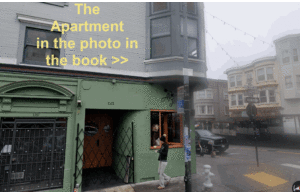My grandfather had fallen from the horse, and it had addled his thought. She cared for him, for he could not work any more. On a weekend away from college, I visited as she dug up bulbs with her trowel, near the fence. Or perhaps she was planting them.
“Why not move into town?” I said, echoing my mother and my Uncle Doc. Between jabs at the earth, she glared, then her face softened.
“This is my home,” she said. Though at the time I thought myself very mature, probably she realized she’d have to spell it out for my ignorance. “I’ve lived here all my life,” she said. “We made our life here.” She pointed with the trowel at the flowers, at the fruit trees, at the cornfield. “We’ve grown these things, and we’ve grown old. This is our home.”
“But now that you have to take care of Granddaddy,” I persisted, “you’re vulnerable out here. In town you’d be closer to help if you ever needed it.” I loved her very much. She’d been consistently kind and clear all of my life. All of us were worried.
“I’ve never been a town lady,” she said, returning to the bulbs. “I’ve never been one to drink tea with my little finger in the air.” She paused, thinking, then said, “I’d rather dig.”
And dig she did. Was she angry? Angry at this turn of life? I don’t know. My flibberty-gibbert mind probably flew away to other, less important and more consuming matters. But for just a moment, squatting near the earth with her, watching her gnarled brown hands, hearing her voice, I knew there was a rightness in what she said, something fierce, true, and wonderful.
Only two weeks later, I got a call and came to see her in hospital. She’d had some Hershey’s syrup, a sweet thing, and she’d stored it in the can in the refrigerator. And, having a treat, contracted food poisoning which flattened her in bed that afternoon. She called out to Frank, her husband.
He came and saw something was wrong.
He had difficulty operating the telephone. He had to make a number of attempts. Time was passing. Finally he succeeded in reaching somebody on the party line. They couldn’t understand him but understood something was wrong.
Everybody knows everybody else. They called my Uncle Doc, who rushed an ambulance to the farm, eight miles north of town. And in the hospital she died. My grandfather was housed in a home nearby, from which he never escaped alive. I visited him there; it was no life for the man he had been, and he soon left. His heart had been torn out.
Have you ever read the I Ching book, where it will describe disaster, and then it says “There is no error.” In other words, things go to hell, but you did nothing wrong. Once, at a convention in Las Vegas, I played some blackjack with a buddy who was a good gambler. I stayed pat with sixteen, and lost the hand. As I groused, he looked at me with clear eyes.
“You did the right thing,” he said, “but you lost.”
Frank Hurn and Maud Hurn. My grandparents.
They did the right thing.
 but Don threatened Hargraves that he’d never bury another Junior League member unless that car got loaned. Don reports that the car dropped from the sky, appearing magically outside his office. And just in time to rush to the airport.
but Don threatened Hargraves that he’d never bury another Junior League member unless that car got loaned. Don reports that the car dropped from the sky, appearing magically outside his office. And just in time to rush to the airport.

 Taken in the Beatnik heyday, late 50’s, the photos show Chinese children playing hide-and-seek up and down the narrow, hilly streets, show the intellectuals drinking espresso in stark coffeehouses, show women dressed as models shopping grandly, and much more.
Taken in the Beatnik heyday, late 50’s, the photos show Chinese children playing hide-and-seek up and down the narrow, hilly streets, show the intellectuals drinking espresso in stark coffeehouses, show women dressed as models shopping grandly, and much more. And, oddly, one of the photographs shows my apartment, where I will live ten years from now.
And, oddly, one of the photographs shows my apartment, where I will live ten years from now. Dallas, Texas, Spring 1966: Living in
Dallas, Texas, Spring 1966: Living in 
